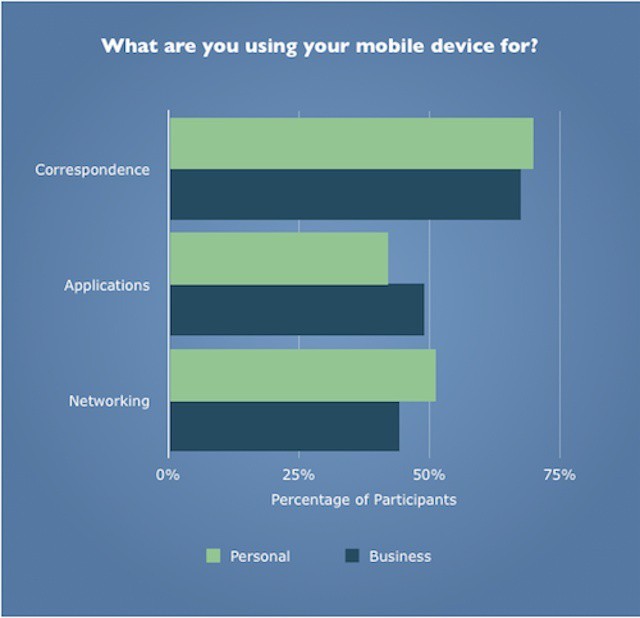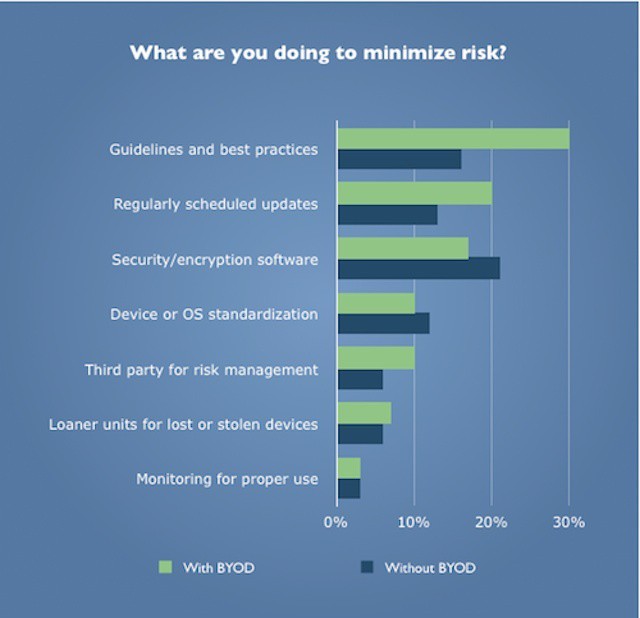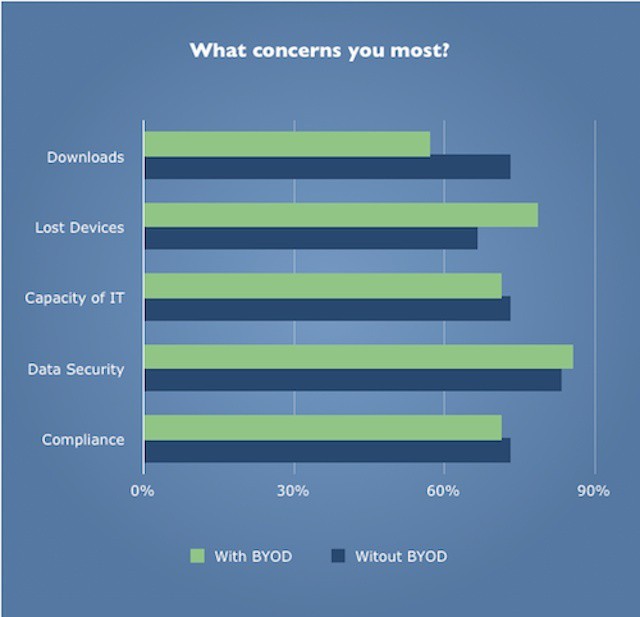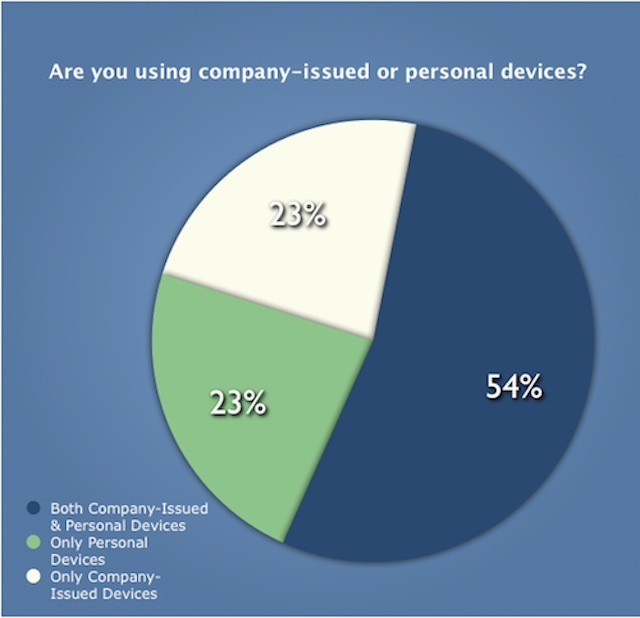Earlier today, we reported on the variability in how companies can define BYOD programs. For some companies BYOD can mean access to just email while in others it can include a range of customer internal apps along with company-purchased selections for the App Store. The exact mix of allowed or supported functionality reflects the IT and management culture of an organization but it can be guided by what users feel they need most.
Email may be the lowest common denominator when it comes to BYOD because it is the most common use of mobile devices in the workplace. That statistic stands out in a new report on how businesses and employees are using mobile technology and how businesses are addressing BYOD as a trend.
As I mentioned, email and other forms of direct communication like messaging and phone calls (together grouped as correspondence) proved to be the most frequent use of mobile devices whether personally or company owned. Working with specific apps or using devices as networking tools was listed as business use by less than half the respondents. With overall numbers like, it’s easy to see why email is the first feature to be allowed on employee-owned iPhones and why further capabilities may not be enough of a priority to convince IT or management to tackle a broader BYOD initiative.

The study also found that the majority of employees using mobile devices are using a combination of both employer-provided and personal devices. Strictly only company-owned or personally-owned usage was pretty much identical. Of course, the results point out that while only 23% of those surveyed were using a personal device exclusively, more than three quarters (77%) were actually using personal technology in the workplace.
The stats on what companies are doing to minimize risks associated with mobile devices were roughly similar regardless of whether or not the devices were part of a BYOD program. While many of the results aren’t surprising, it’s interesting that monitoring for proper/improper use was barely reported at all despite the monitoring capabilities of iOS and other mobile platforms as well as the reporting and alert capabilities offered by most device management suites. Most organizations, however seem to focus on presenting guidelines and best practice advice to users, which is becoming an integral theme of the consumerization of IT story.

Also included information about specific mobile device concerns, which seem to be pretty evenly spread around typical themes. Among concerns, data security was the biggest potential issue cited followed by IT capacity limits, compliance with policies/regulations, and lost devices. Issues around downloading content from the Internet was also a concern, but didn’t rank as high as the other issues.

Other information in the study, which is well worth checking out if your company is considering implementing or expanding a BYOD program, looked at overall goals targeted in planning BYOD policies and how effective organizations were in meeting them.


